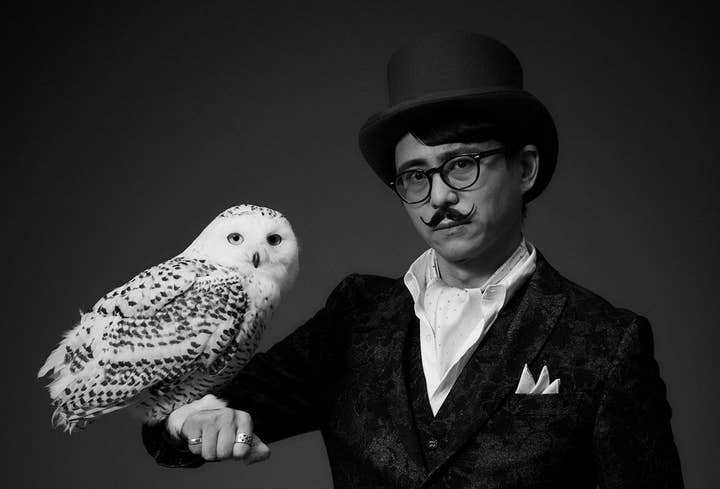"We just want to keep the IP" - Why Swery is banking on crowd-funding
The Good Life approaches its last stretch on Kickstarter
Hidetaka Suehiro, Swery to most of us, is renown for his bizarre video games.
Cult favourite Deadly Premonition and Microsoft-published D4: Dark Dreams Don't Die are arguably his most famous products, yet despite his distinct style and vision, they're not actually his games. They're either owned by the publisher or his former employer, Access Games.
Swery has now struck out on his own to create The Good Life, a typically bizarre mystery RPG set in England. The game stars Naomi, a New York journalist who has traveled to the 'world's most happiest town' to take pictures and pay off her debts. On the way, she can take up odd jobs, whilst also uncovering the mystery behind a dead body and the fact all the town's inhabitants turn into cats (or dogs) at night.

The game's broad idea was inspired by Swery's former producer, who had travelled to the UK for work and ended up having to stay for 4 years.
"That situation where you're stuck in another country, with another culture, is really interesting," Swery tells GamesIndustry.biz. "My producer had changed a lot by the time he came back. He didn't really want to go. He was initially complaining that it was going to be cold. But by the time he came back, he was missing the London winter."
And then there's the town full of cats.
"I had 12 cats at the same time, and I realised that all of them had different personalities and characters," he insists. "They were like humans. So I used that essence in the game. I always wanted to use it somewhere."
It's classic Swery, but it's a difficult sell on a crowd-funding campaign. Swery and his studio - White Owls - took the game to Fig last year and asked for $1.5 million. It raised $682,864 - 45% of its goal - and the campaign failed.
"It didn't go well," he acknowledges. "So we made some big changes for the Kickstarter campaign.
"The last campaign, it was our first attempt at this sort of thing. We didn't know what to expect. As creators, we thought people would be putting money down to get that product. But people wanted to help us with it. They're not just paying money for a product, it was more like sharing the experience of making the game. Making it together. We didn't think that way before. We thought, as creators, we should make games and then just give it to people."
He continues: "In terms of differences, we only tried to raise money from crowd-funding last time. This time, however, we're using Kickstarter but also working with partners. We're funding the project through both methods.
"Because of these partners, our funding goal is half of what it was when it was on Fig. It's cheaper than last time. It's dropped from $1.5 million to $650,000."
"We only believe that this campaign will succeed. We are putting a lot of effort into making this a success"
Indeed, the game now boasts significantly improved visuals, plus new gameplay options and the ability to choose between cat and dog characters. Furthermore, Swery is now only asking for the same amount of money the game raised last time. But for whatever reason progress has been slow, with the game on $330,000 with 8 days let to go.
The Good Life does have more backers on Kickstarter than it did on Fig (6,291 vs 3,478), but it's going to be a challenge to avoid another failure.
Not that crowd-funding is the only option available to a game developer like Swery. Indeed, he's already managed to lower the cost of the crowd-funding by partnering with Unties, an indie games label owned by Sony Music in Japan.
Yet making this crowd-funding project a success is important to the team, because Swery is determined to retain ownership of the games he creates.
"In Japan, if we get a publisher-type company to support the game, they usually take 100% of the IP," he tells us. "They own the game. The developer has no rights. But if we do crowd-funding and get some money to develop it ourselves, we get to keep the IP. We would like to change the system a little bit. As a developer, you are making your game, but eventually we lose it. So what motivation do we have to make the game? So we'd like to change the situation."
He concludes: "We only believe that this campaign will succeed. We are putting a lot of effort into making this a success. We don't really have time to think about what might happen if it fails. But whatever happens, we're determined to make this game."

